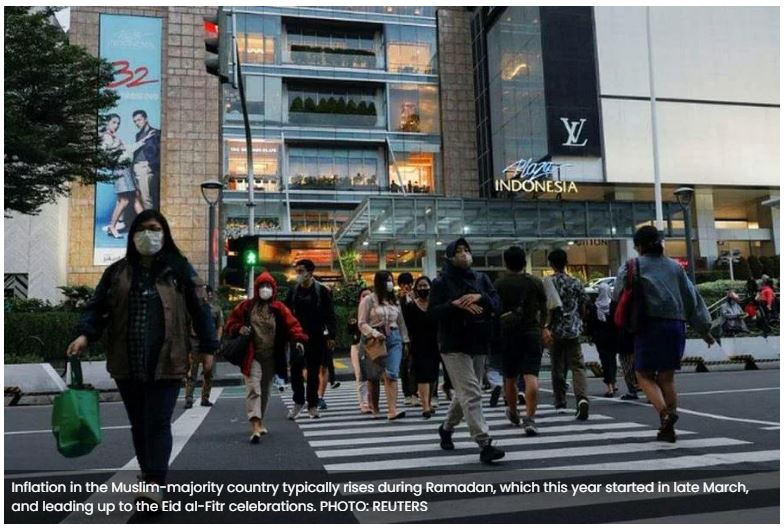Indonesia’s inflation slows more than expected in March
INDONESIA’S annual inflation cooled to its lowest rate in seven months in March, data from the statistics bureau showed on Monday (Apr 3), as prices rose slower than usual during the beginning of the Muslim fasting month of Ramadan.
March’s annual inflation rate was 4.97 per cent, the lowest since August 2022, and down from 5.47 per cent in the previous month. A Reuters poll had expected a March rate of 5.2 per cent.
The annual core inflation rate also came in below market expectation, at 2.94 per cent versus the poll’s 3.05 per cent. The April rate was 3.09 per cent.
Inflation in the Muslim-majority country typically rises during Ramadan, which this year started in late March, and leading up to the Eid al-Fitr celebrations.
The statistics bureau noted that this year’s price pressures were below those seen in recent years, excluding the early years of the pandemic.
“Consumption patterns have not returned 100 per cent to normal (after the pandemic). This means demand was not high,” said Pudji Ismartini, deputy head of the bureau.
Inflation in South-east Asia’s largest economy has stayed above the central bank’s target range of 2 per cent to 4 per cent since the middle of last year amid high global food and energy prices.
Bank Indonesia (BI) officials have said inflation would likely return to its target range in September on base effects and after the central bank raised rates by 225 basis points between August to January. The government had raised fuel prices in September 2022.
Maybank Indonesia economist Myrdal Gunarto said the “unexpectedly, very low” March inflation showed officials were successful in controlling price pressures, predicting annual inflation would slow further to 3.2 per cent to 3.4 per cent by the end of 2023.
Radhika Rao, a DBS economist, said the inflation figures validated BI’s view that inflationary pressures were dissipating.
“Policy rates are in for an extended pause, with the mixed dollar tone also helping to contain volatility in the currency,” she said. REUTERS


 Thailand
Thailand




